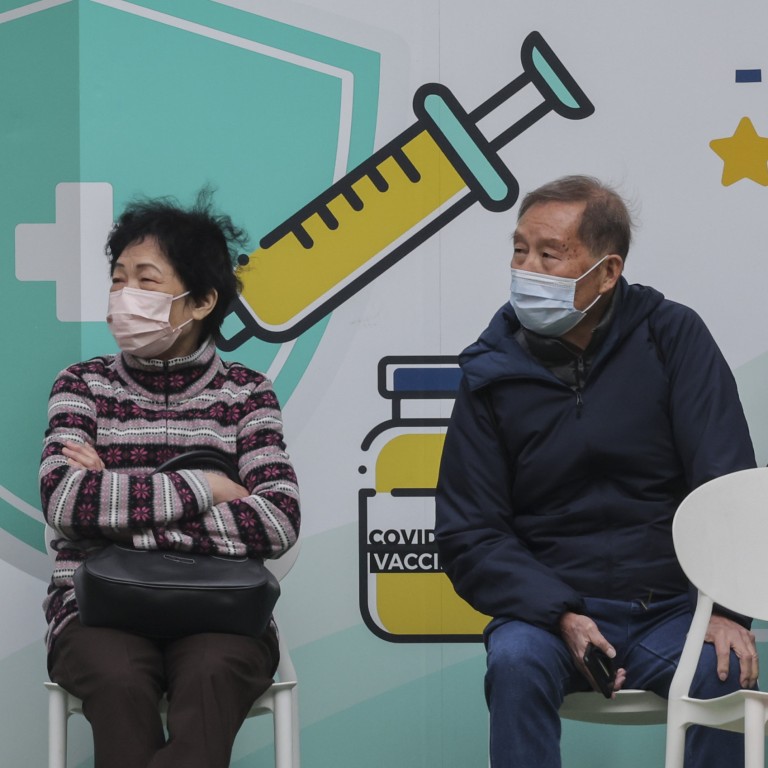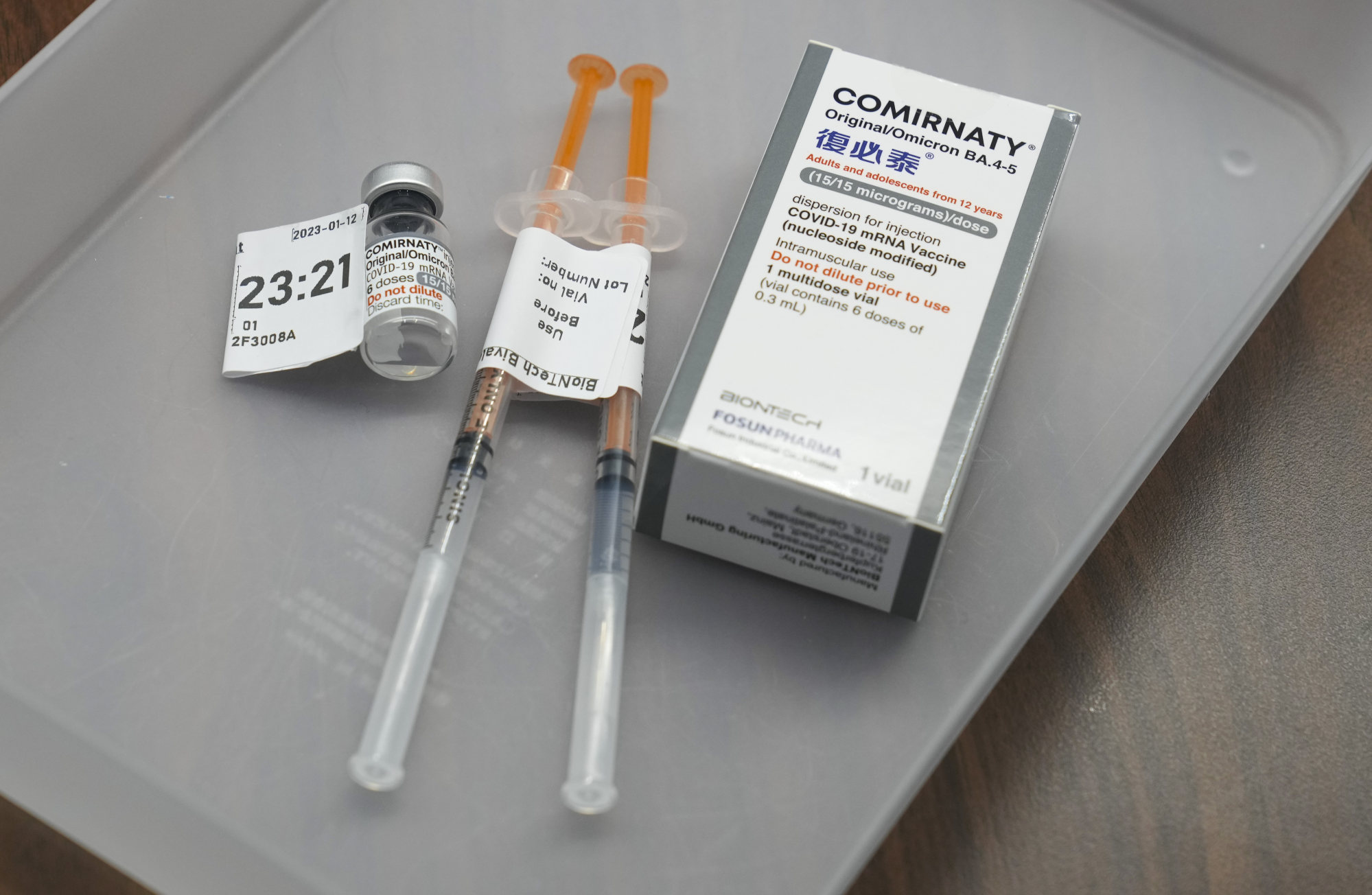
Covid-19: those in high-risk group should still get extra jabs, Hong Kong experts say after WHO revises recommendations
- Those not in high-risk group can consider getting one more Covid-19 shot ‘based on personal choice’, Hong Kong medical experts say
- World Health Organization no longer recommends an extra booster dose for regular, medium-risk adults as the benefit is marginal
A joint scientific committee under the Centre for Health Protection also said on Wednesday that those not in the high-risk group could consider getting one more Covid-19 shot “based on personal choice”.
The committee’s advice, issued after a meeting of the experts on Wednesday, took into account the World Health Organization’s revised recommendations on vaccinations, overseas practice and latest scientific evidence.
The high-risk group covers people aged 50 or older, including care home residents, adults aged 18 to 49 with underlying comorbidities, those aged at least six months with immunocompromised conditions, pregnant women and healthcare workers.
No rush for Covid vaccine booster shots among mainland Chinese visitors in Hong Kong
“This group of people can get an extra shot in 2023, no matter how many doses they have received in the past. They must wait for at least six months after the previous dose,” Professor Lau Yu-lung, chairman of the scientific committee on vaccine preventable diseases which forms part of the joint panel, told the Post.
Experts said there was still a need to protect people at higher risk as Covid-19 had become endemic.
“One’s antibodies drop six months [after vaccination or infection],” said Professor David Hui Shu-cheong, who chairs the scientific committee on emerging and zoonotic diseases, which is also part of the joint panel.
“The high-risk group is at risk of fatal and severe diseases … if there is a new variant a few months later and their antibodies have dropped, they will not be protected.”

The experts also highlighted that their recommendation for an additional shot in 2023 should not be positioned as an annual or regular Covid-19 vaccine booster.
Hui said policies for Covid-19 and flu jabs would have to be handled differently.
“Flu is seasonal, but Covid-19 is not necessarily seasonal. Policies for these two are not exactly the same,” he said. “Now we can only play it by ear”.
For those not in the high-risk group, the experts said an extra dose this year “may be considered” out of personal choice, but healthy children aged six months to 17 years did not require them.
Hui said healthy children were at low risk of developing severe conditions even if they were infected, and having received three doses of vaccine would be enough for protection.
Hong Kong scientist’s life threatened 3 times in 26 years while studying outbreaks
The experts said BioNTech’s bivalent vaccine – previously only used for booster shots – could be given for all recommended doses, although usage should be “based on clinical discretion”.
The government is expected to determine the latest vaccination arrangements based on the committee’s recommendations.
The local guidance largely followed that issued on Tuesday by the WHO, which no longer recommended extra booster doses for regular, medium-risk adults as the benefit was marginal.
Hui said Hong Kong was keeping the option of vaccination open for that group in case they required extra protection when heading overseas. Similarly, they should also wait for at least six months before taking another dose.
The WHO recommendations were made to reflect the impact of the Omicron variant and high population-level immunity because of infection and vaccination.

The recommendations, made by the WHO’s Strategic Advisory Group of Experts on Immunisation, were “time limited, applying for the current epidemiological scenario only”, the agency said.
The revised road map divided Covid-19 vaccination priorities into high, medium and low for different groups, based on factors such as risk of severe disease and cost-effectiveness. Those with high priority were recommended to get an additional shot either six or 12 months after the last dose.
Since Hong Kong’s Covid-19 vaccination programme began in February 2021, around 93 per cent of the eligible population has received two doses. More than 5.8 million people have received three doses, and over 1.1 million four doses.
Hongkongers urged to up vigilance against flu after ‘slight’ infection spike
Vaccination numbers have been falling since last October, from about 35,000 jabs administered daily to around 5,000 in late November.
A spike to more than 10,000 doses per day occurred when the bivalent vaccine, which offers better protection against Omicron, was made available in December.
Another peak was seen in early January as Hong Kong and mainland China began to reopen the border, with more than 20,000 people receiving jabs each day, mostly the bivalent vaccine.

